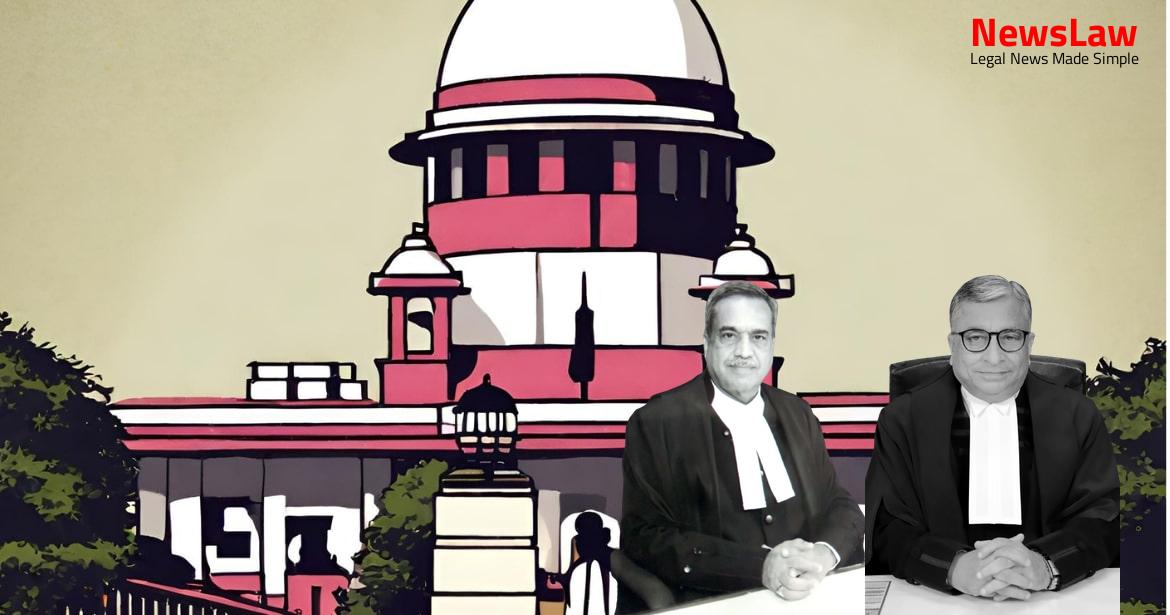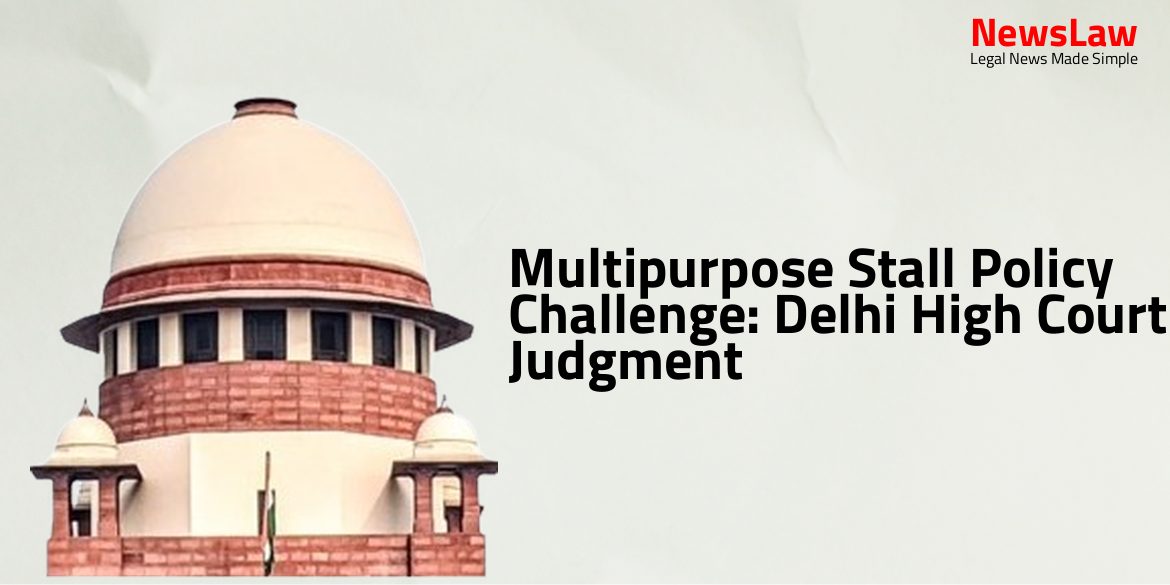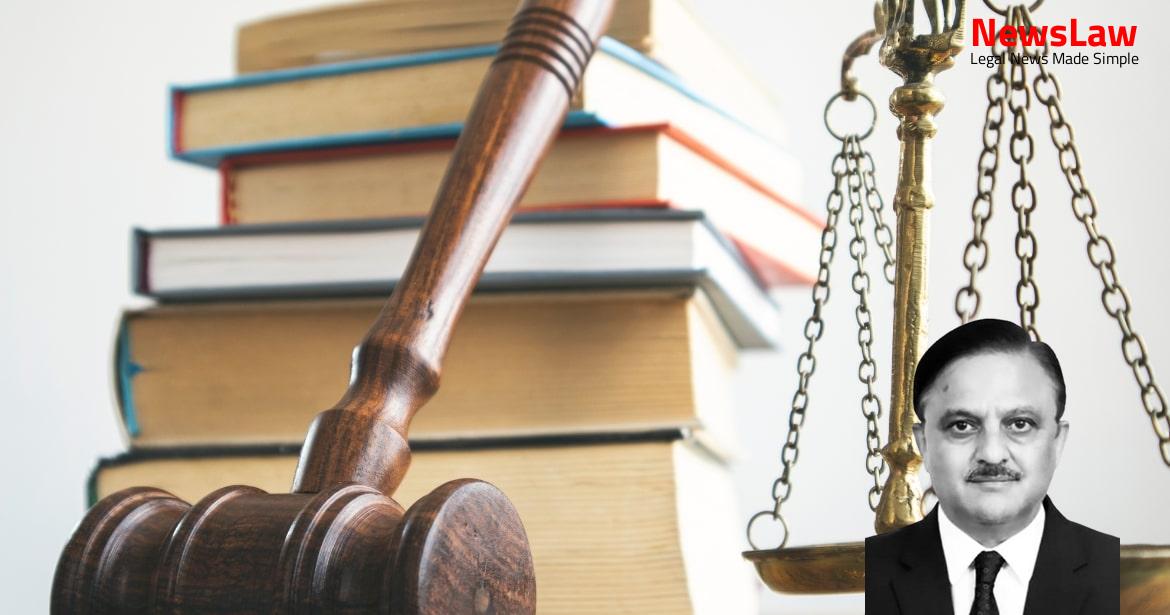In a recent legal case, the High Court meticulously analyzed a termination order that was challenged after being approved by the Industrial Tribunal. The court’s decision to set aside the termination order raises important questions about industrial disputes and the legal principles governing such matters. Let’s explore the nuanced legal analysis that led to the quashing of the termination order.
Facts
- The appellant, Rajasthan State Road Transport Corporation, appealed against the judgment and order dated 12.08.2021 passed by the Division Bench of the High Court of Judicature for Rajasthan at Jaipur.
- The Division Bench had dismissed the appeal challenging the order passed by the Single Judge, which in turn dismissed the writ petition filed by the appellant and confirmed the Labour Court’s decision to set aside the termination order against the workman.
- The termination of the workman’s services was done by the employer, Rajasthan State Road Transport Corporation, via an order dated 31.07.2001.
- The Industrial Tribunal found the enquiry conducted by the employer to be flawed.
- The Judgment and Award of the Labour Court was disputed before the Single Judge of the High Court.
- Both parties presented evidence before the Tribunal on the alleged charges.
- Appellants submitted oral and documentary evidence.
- Industrial Tribunal approved the order of termination under Section 33(2)(b) of the I.D. Act on 21.07.2015.
- After 19 years, workman challenged the 2001 termination which was set aside by the Labour Court on 19.11.2019.
- Labour Court granted 50% back wages from termination till the workman’s death on 10.12.2018.
- The workman was a Conductor and faced a departmental inquiry for not issuing tickets to passengers but collecting payment.
- Appellant Corporation was allowed to prove charges by the Industrial Tribunal on 12.12.2012.
- High Court dismissed the appeal leading to the current case.
Also Read: Challenging Legal Presumptions in Negotiable Instrument Cases
Arguments
- Proceedings under Section 33(2)(b) and Section 10 of the I.D. Act are distinct and different.
- Findings recorded under Section 33(2)(b) summary proceedings do not affect substantive rights in a reference under Section 10 of the I.D. Act.
- The appeal is vehemently opposed by the respondent’s counsel.
- The High Court erred in confirming the Labour Court’s judgment and award quashing the termination order approved by the Industrial Tribunal.
- Workman’s attempt to raise an industrial dispute after 19 years post the termination order approval was not permissible.
- The counsel argues serious error by the High Court in dismissing the writ appeal/writ petition.
- The fact that the workman has died and his heir – widow is awarded 50% back wages supports the Labour Court’s decision.
- The Labour Court did not commit an error in considering the validity of the termination order and subsequently quashing it while ordering 50% back wages.
Also Read: Legal Analysis of Admission Irregularities in Educational Institutions
Analysis
- Management was permitted to lead evidence and prove misconduct before the Tribunal.
- Order of termination was approved by the Industrial Tribunal, attaining finality.
- The High Court did not consider the approval of termination by the Industrial Tribunal.
- Workman challenged termination after it was already approved by the Industrial Tribunal.
- Industrial Tribunal permitted management to lead evidence and prove misconduct.
- Order of termination was approved after evidence was appreciated.
- Fresh reference under Section 10 of the I.D. Act challenging termination was not permissible after approval by Industrial Tribunal.
- Decision in the case of John D’Souza was deemed not applicable to the current case.
- Findings recorded by the Industrial Tribunal after approving termination were binding between the parties.
- The workman was accused of not issuing tickets to 10 passengers despite collecting fare.
- The judgment and award passed by the Labour Court were confirmed by the High Court but is considered unsustainable.
- No contrary view could have been taken by the Labour Court against the findings of the Industrial Tribunal.
- The High Court made a serious error by dismissing the writ petition and confirming the judgment and award of the Labour Court that set aside the termination order.
- Therefore, the present appeal succeeds due to the errors committed by the High Court in this matter.
Also Read: Quashing of Enhanced Tuition Fee in Private Medical Colleges
Decision
- The impugned judgment and order passed by the High Court and confirmed by the Labour Court setting aside the order of termination are quashed and set aside.
- The Present Appeal is allowed in the mentioned extent.
Case Title: RAJASTHAN STATE ROAD TRANSPORT CORPORATION Vs. BHARAT SINGH JHALA (DEAD) SON OF SHRI NATHU SINGH, THROUGH LEGAL HEIRS (2022 INSC 1048)
Case Number: C.A. No.-006942-006942 / 2022



